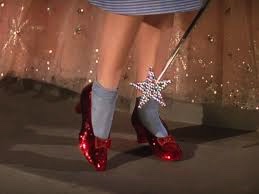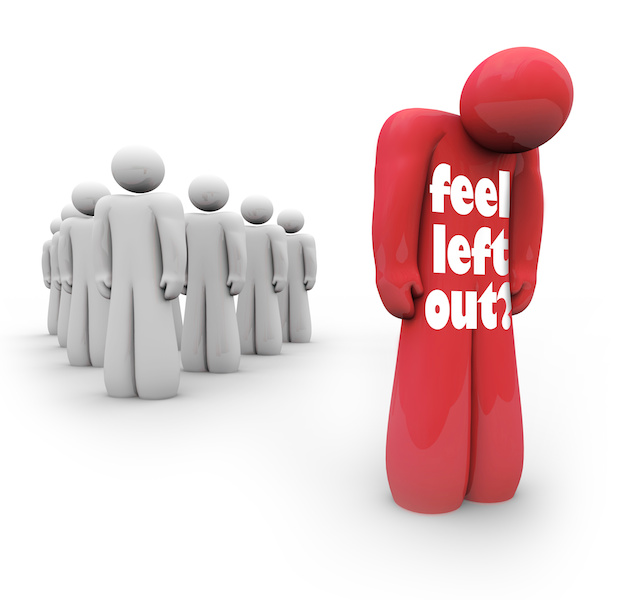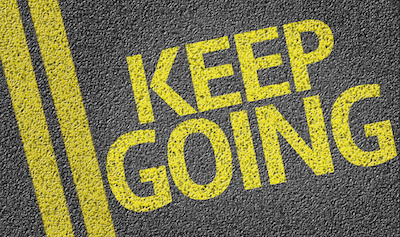Divorce? Unspin Your Stories! Six Ideas from Dorothy
 Here’s salve for the pain of divorce. I watched the Wizard of Oz last night. I still get goose bumps when Judy Garland belts out Somewhere Over the Rainbow.
Here’s salve for the pain of divorce. I watched the Wizard of Oz last night. I still get goose bumps when Judy Garland belts out Somewhere Over the Rainbow.
But there’s bigger news for us here: This gem remains a classic because Dorothy’s journey takes her from self doubt to self determination. We identify with her trek down the Yellow Brick Road in high hopes that The Wizard of Oz will save her and transport her back “home” to Kansas. In the end, (spoiler alert) The Wizard turns out to have no power, and Dorothy figures it out: the power to go home was inside of her all the time. She simply had to believe it.
Easy enough for Hollywood to say, right? In real life, Judy Garland drank herself into the next world, as insecurities consumed her. It’s a rough journey from the shadow of self doubt to the sunshine of self confidence, especially after an event like divorce.
In my experience, self doubt is the #1 roadblock hindering recovery after divorce, or any cataclysmic event, for that matter. The chorus is always the same: “I’m scared.”, “What do I do now?”, “Will this ever end?”, “I’m not strong enough”, “I don’t know how.” and the biggie – “I’m not good enough.”
Self doubt and the stories that we spin about ourselves because of it! Damn that self doubt! I’m no stranger to it, myself. Sometimes, I’d like to I dig it out of my brain with a shovel.
There’s an easier way.
Here are four avenues I share with my clients to make those first big steps back home to your more confident self.
Step one: Admit you’ve been through a tornado of life circumstances, and you’re not in Kansas anymore. You need help to get back home.
Before we continue, a word to the wise: Slogging through self doubt is a necessary part of moving forward. It gives you a base line for starting over.
As I tell my clients, if you want to grow roses, you have to dig around in the dirt for awhile.
Not everyone is prepared for the close self examination it takes to change story lines and dash self doubt. If you’re ready to sweat a little, and get your hands dirty planting the seeds of self determination, read on. Otherwise, come back to this blog when you’re ready to break through barriers holding you back. You’ll know when the time is right.
Sometimes, you’ll be able to unearth these self-defeating beliefs on your own. Other times, professional coaching or therapy can help to zoom in on what’s holding you back. I’m happy to help if you need guidance: click here.
Step two: Be willing to concede that your beliefs may be holding you back, and openly state that you’ll be uncomfortable while you dig through the dirt of your stories for awhile.
Step three: Keep a journal. Dump your insecurities out of your head and on to the paper. Read what you’ve written.
- Where are the self-defeating beliefs? Write them down and ask yourself what solid evidence (not hearsay) do you have that they are true? How can you change that message? I suggest this phrase: “That story no longer serves me. I’m letting it go. That was then. This is now.”
- Watch the words you use. As you write, circle these self doubt and self critical words: can’t, impossible, too hard, not good enough, never, should, ought to, supposed to. Become aware of what you’re telling yourself.
Step four: Turn off the bad news. Media channels are full of death, sadness or human failure. Don’t listen. Bad news worms its way into your brain and festers. It reduces your capacity to believe in yourself because it’s fear based. Stand tall in defense of yourself, and refuse to let bad news in. That includes watching fictional TV series full of blood and corruption.
Step five: When you start to say something negative – about anything – stop yourself. See what happens when you take away the burden of irritation and anger. Sure, some of it will linger, but you’ve given yourself a chance to rise to higher level. Additionally, your brain believes everything you tell it. Replace negativity with, “I choose not to be offended.” Or, my personal favorite, “Forward!”.
Step six: Listen to inspirational podcasts. Music, too, boosts your confidence. Step onto your yellow brick road today. Here’s your invitation. Ease On Down The Road from The Wiz. That’s Michael Jackson and Diana Ross, by the way. Enjoy! Or, try Whitney Houston’s The Greatest Love of All .
Here’s the thing: When you stop looking for someone to save you or tell you what to do, you look to the only source you can truly rely on: your own natural gifts.
There’s no power in Dorothy’s red slippers or the Wizard of Oz, after all. Plus, you don’t need to click your heels three times. You simply have to take the first step. Then the next. Keep going. Believing in your own personal power – and flipping self doubt into self daring – will unfold in front of you.
Need personal coaching or therapy to dash those demons of doubt? Contact me and we can begin the process together.
In the meantime, “Forward!”. Or, listen to the advice of 94-year-old Norman Lear. The producer of legendary TV shows like All In The Family told NPR that the formula for a long life is two words: “Over. Next!”.
Leave me a comment, below, and let me know how you’ve dashed the self doubt in your predicament. Tell me how you’ve claimed your own Wizard.
FORWARD!

 Lewis was a cat. No pedigree. No unusual markings. Just furry gray, huggable, and independent. In the last year, he managed to sneak out of the house twice. He
Lewis was a cat. No pedigree. No unusual markings. Just furry gray, huggable, and independent. In the last year, he managed to sneak out of the house twice. He  Betrayal
Betrayal The story, briefly: A cantankerous, depressed, blind Army Lieutenant Colonel Frank Slade (Al Pacino) hires a timid 17-year-old prep student Charlie Simms (a young Chris O’Donnell) to aid in the completion of his bucket list – one more fling – an escape from the colonel’s isolated life in Boston to New York City where O’Donnell will “babysit” the colonel (Pacino) over Thanksgiving. When the list is concluded, the colonel intends to return to Boston where he’ll kill himself and end his hopeless, useless life as a blind man. O’Donnell’s experience in NYC with Pacino is hardly what he anticipates, however. The sometimes harrowing, sometimes poignant, often erotic adventures in NYC teach O’Donnell how precious life’s moments can be. Pacino’s joie de vivre is revived and his return to Boston is laden with unexpected life loving twists.
The story, briefly: A cantankerous, depressed, blind Army Lieutenant Colonel Frank Slade (Al Pacino) hires a timid 17-year-old prep student Charlie Simms (a young Chris O’Donnell) to aid in the completion of his bucket list – one more fling – an escape from the colonel’s isolated life in Boston to New York City where O’Donnell will “babysit” the colonel (Pacino) over Thanksgiving. When the list is concluded, the colonel intends to return to Boston where he’ll kill himself and end his hopeless, useless life as a blind man. O’Donnell’s experience in NYC with Pacino is hardly what he anticipates, however. The sometimes harrowing, sometimes poignant, often erotic adventures in NYC teach O’Donnell how precious life’s moments can be. Pacino’s joie de vivre is revived and his return to Boston is laden with unexpected life loving twists. In the meantime, the meter is ticking. Jim’s passing taught me that. I can hear him saying, “Get going! Time’s ‘awasting’”! What are you waiting for? Take my hand and we’ll lean over the edge ever so slightly. Here we go – jumping directly into a new exhilarating life!
In the meantime, the meter is ticking. Jim’s passing taught me that. I can hear him saying, “Get going! Time’s ‘awasting’”! What are you waiting for? Take my hand and we’ll lean over the edge ever so slightly. Here we go – jumping directly into a new exhilarating life! Tragically, no one teaches us how. We are taught to offer solutions, instead. Why? Our society values action and results, logic rather than emotions. A logical solution masquerades as an escape from emotional pain. The well-meaning friend thinks: “If I offer reassurance and a plan, she’ll feel better.” Not necessarily true. Of course, no one wants to watch her friend cry. It’s uncomfortable and painful for everyone. We want to kiss it and make it better.
Tragically, no one teaches us how. We are taught to offer solutions, instead. Why? Our society values action and results, logic rather than emotions. A logical solution masquerades as an escape from emotional pain. The well-meaning friend thinks: “If I offer reassurance and a plan, she’ll feel better.” Not necessarily true. Of course, no one wants to watch her friend cry. It’s uncomfortable and painful for everyone. We want to kiss it and make it better. Here are 6 steps to help you unearth those core strengths, rescue your lost self, and answer the question, “Who Am I, Now?”
Here are 6 steps to help you unearth those core strengths, rescue your lost self, and answer the question, “Who Am I, Now?” They tell me about their forthcoming trip to Europe. I tell them how much fun they’re going to have. We finish the meal. I call Uber, go home, cry hard, and fall dead asleep.
They tell me about their forthcoming trip to Europe. I tell them how much fun they’re going to have. We finish the meal. I call Uber, go home, cry hard, and fall dead asleep.
 In the meantime, check out this episode in my own life. I think you’ll identify.
In the meantime, check out this episode in my own life. I think you’ll identify.